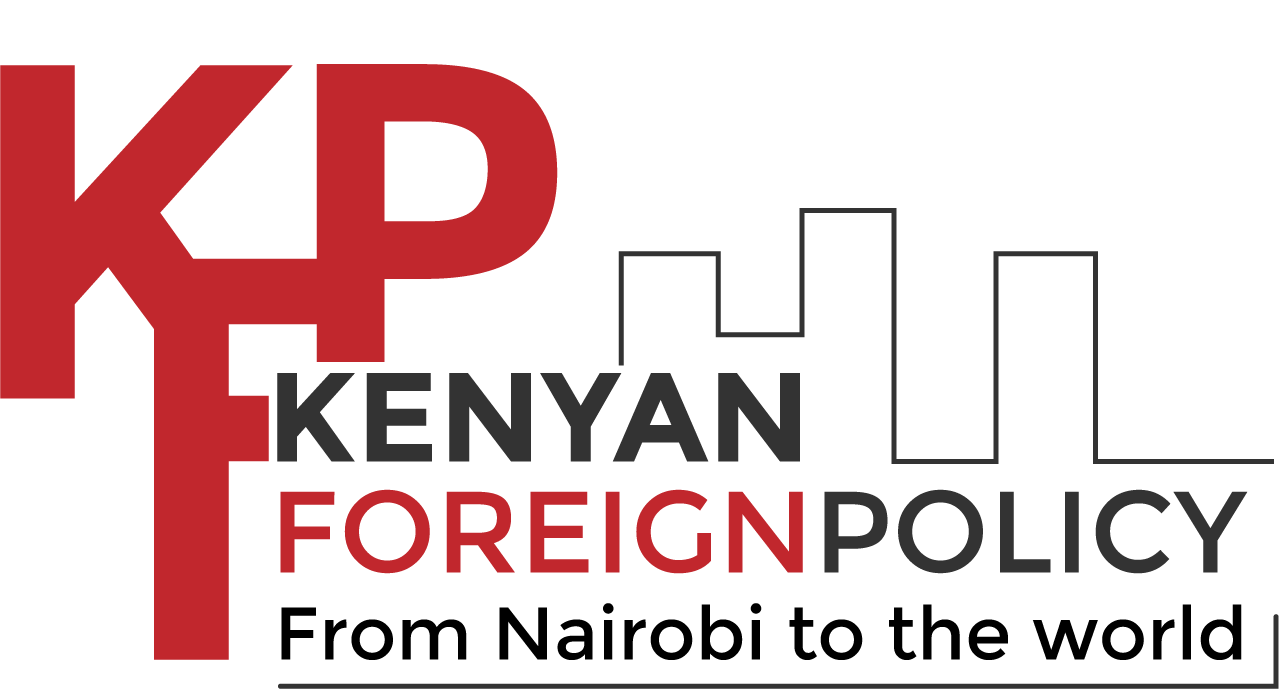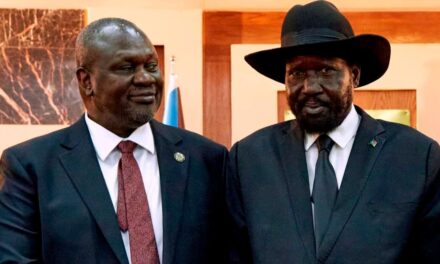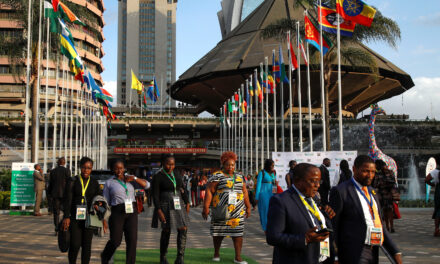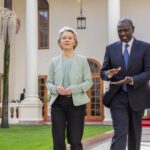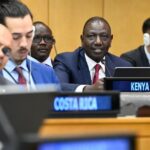
ISRAEL-PALESTINE CONFLICT: Is Kenya Shifting Her Voting Policy at the UN?
Posted by Kenyan Foreign Policy | Jun 5, 2023 | DIPLOMACY


Kenya in a shocking move, on Wednesday, May 24, abstained from a World Health Organization (WHO) vote on health conditions in occupied Palestine.
The health resolution which was passed with 76 votes in favor, 13 against, and 35 countries, including Kenya abstaining at the end of the draft bill discussions on the health conditions in the occupied Palestinian territory, including East Jerusalem and the occupied Syrian Golan.
The special debate which took place during the 76th World Health Assembly, singled out Israel as a violator of health rights.
Kenya abstained from voting on the adoption of this resolution tabled by the Syrian and Palestinian delegations requiring the global health body to hold the same debate next year during the 77th World Health Assembly and to prepare another report on the health conditions in the occupied Palestinian territory.
This was the only agenda item at the assembly focusing on a specific country.
Nairobi hasn’t yet issued an official communication as to why the country abstained from voting on a healthcare resolution.
Kenya’s Position on Israel-Palestine Conflict.
Though Kenya has an official policy that calls for a two-state solution for the Israel-Palestine conflict, based on the maps that distinguished their territories as of 1967- the abstention is seen as “consent” toward Israel.
A senior diplomatic source in Nairobi who spoke to Kenyan Foreign Policy with conditions of anonymity was appalled by Kenya’s decision.
He questioned the motive behind Kenya not taking a vote over a matter such as healthcare.
“This is how stupid our foreign policy has become,” said the diplomat who was extensively engaged in crafting Kenya’s Foreign Policy in 2014.
A shift in policy?
Within the United Nations forums, Kenya under former President Uhuru Kenyatta supported the Palestinian course by backing the UN resolutions that were viewed by Israel as unfavorable, including publicly condemning Israel at the United Nations Security Council for human rights violations in occupied Palestine.
But the regime change in September 2022 signals a significant shift in Kenya’s policy on the Israel-Palestine conflict if the recent events at the UN bodies since President Ruto came to power, are something to go by.
Kenya on November 10, 2022, during the fourth committee voted in favor of Palestine’s request to the International Court of Justice (ICJ) to issue an advisory opinion relating to the Israeli occupation of Palestinian territory.
But a month later Kenya backtracked at the General Assembly and voted against Palestine’s request to have the International Court of Justice give an opinion on the legal consequences of Israeli occupation of the Palestinian territories, a move that was widely condemned by foreign policy commentators.
A senior foreign diplomat in Nairobi pointed out the inconsistencies in Kenya’s policy arguing that the country’s diplomacy was likely to shift to a “transactional” one.
He questioned whether Kenya was being “bullied” by external powers at the multilateral level.
“Kenya has always had a YES principle on matters of sovereignty but this voting is alarming,” said the middle east diplomat.
Israel Observer Status at the AU
During the African Union summit in February 2023, Israel sought to be re-admitted to the continental body on an observer status. Nairobi did not object to this request, though the African Union issued one of the toughest commentaries on Israel’s alleged mistreatment of Palestinians.
Israel previously held observer status at the Organisation of African Unity (OAU) but was long thwarted in its attempts to get it back after the OAU was disbanded in 2002 and replaced by the African Union (AU).
The continental bloc asked member states to cut scientific or cultural ties with Israel until the Jewish nation stops “colonial” practices against Palestine.
Economic Interests.
And though Kenya’s policy on this conflict aligns with that of the African Union, the Nairobi regime which came to power nine months ago riding on an economic-focused manifesto seems to be getting closer to Israel.
President William Ruto visited Israel for his first state visit in May and met with the country’s President and Prime Minister Benjamin Netanyahu.

Bilateral agreements were signed during this visit.
Israeli President Isaac Herzog welcomed the Kenyan leader and his delegation and said that “I see this meeting as an important turning point in bolstering the relationship between the countries,”.
He further appreciated Ruto’s friendship in international forums, perhaps referring to Kenya’s change of voting policy at the global bodies.
President Ruto on his side praised the relations noting that they share a longstanding joint history.
Domestically, the economy is an important factor in Kenya’s foreign policy because Israeli assistance in agriculture is geared towards its improvement.
Nairobi has also gained a lot economically from other Israeli-friendly states such as the United States by maintaining cordial ties with Israel.
In September 2020, Washington “bullied” Nairobi to publicly support Israel or forget about the African Growth and Opportunity Act, which allows sub-Saharan African countries to export thousands of products to the US without tariffs or quotas until 2025.
The US argued that the free trade deal should “discourage politically motivated actions to boycott, divest from, and sanction Israel”.
Washington has for decades been an ardent supporter and defender of Israel on the global stage and in the volatile middle east.
President Ruto has intensified engagements with the US, signaling a shift from the East to the West policy, in terms of his economic-centered foreign policy.
Your support empowers us to deliver quality global journalism. Whether big or small, every contribution is valuable to our mission and readers.
